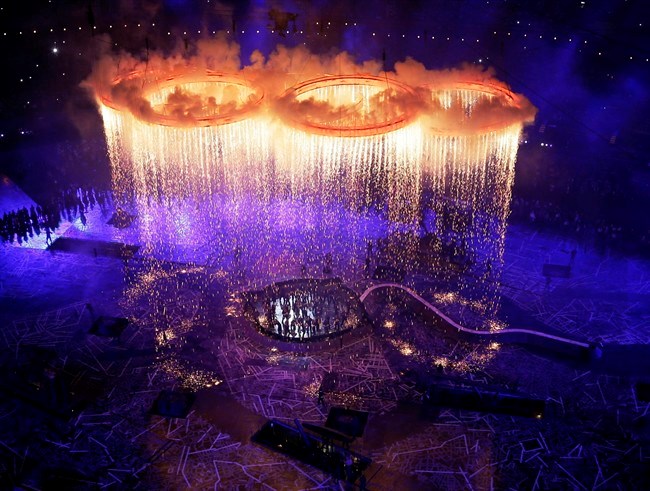LONDON - Britain is pumping record amounts of cash into its Olympic sport programs, aiming to win more medals in Rio de Janeiro in 2016 than it did as host nation in London this year.
Despite continuing austerity measures in Britain, the sports body pledged Tuesday to invest 276 million pounds (C$441 million) — an increase of 5 per cent — to meet a target of winning 66 medals in Brazil, one more than its record total in London.
"It's a very, very tough ask," Sports Minister Hugh Robertson told The Associated Press. "But there are sports that didn't perform particularly well in London. If we can get them right and continue the improvement in other sports, there's no reason why we shouldn't do it."
Roared on by passionate home crowds, Britain finished third in gold medals in London with 29, behind the United States and China. Britain was fourth in the overall medal count with 65, behind the U.S., China and Russia.
"We want to be the first nation in recent history to be more successful in both the Olympics and Paralympics, post-hosting," said Liz Nicholl, chief executive of UK Sport, the body that distributes government and National Lottery funds to Olympics sports.
Cycling produced Britain's most medals in London with 12, followed by rowing with nine, and both sports will receive at least 30 million pounds each ($48 million) in an attempt to maintain their supremacy. Boxing was the biggest winner after being given 13.8 million pounds ($22.1 million) — 4.25 million pounds ($6.8 million) more than the 2009-13 cycle.
British swimming, which performed below expectations in London, was one of five sports to have its Olympic funding slashed, while four more — basketball, handball, wrestling and table tennis — will receive no cash at all.
"We have learned how to invest the money strategically — it isn't about being popular, it's about using compassion without sentimentality," said Sue Campbell, the chair of UK Sport. "We will continue with our athletes-centred, no-compromise approach."
With funding for Paralympic sports up 43 per cent to 70.2 million pounds ($112.4 million), it is a huge commitment by the British government at a time when families and businesses are feeling the economic pinch.
"The London Games inspired the public and moved politicians to make a commitment," Nicholl said.
UK Sport said a breakdown of medal projections by sport for Rio will not be made until months before the games.



